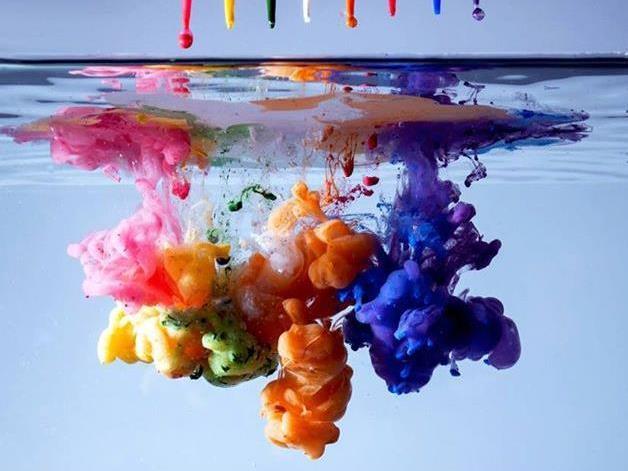Image: True Colors by Antonio Iacobelli
Copyright is pretty simple really. To use author John Birmingham’s words, it’s a codification of respect for creators. It means that if you want to use someone else’s original work, you ask permission. And if the creator wants to be paid for it, you pay them or you simply don’t use their work.
In a recent article originally published at The Conversation, Dan Hunter seemed to suggest that if you didn’t pay creators they would be more creative. Perhaps there is the exception in the odd instance where this might prove to be true. It makes for great dinner party chat. But it is not a good reason to abandon the code of respect that underpins the investment in all the great forms of entertainment and culture we enjoy, be it film, television, music, games or writing.
To support his theory, Dan Hunter talks up a study where paying kids to learn how to read didn’t work so well. Is there any parent surprised by this? Oh and solving puzzles as a paid enterprise didn’t work so well either. People who enjoy the hobby of puzzle solving may be disappointed by this. It’s got nothing to do with copyright however.
Artists, according to Dan Hunter, apparently don’t produce their best work when commissioned. If this is true, it makes one wonder are pro-bono legal academics more creative than paid legal academics? Speculation aside, here’s what would happen if you stopped paying lawyers and academics: they would stop turning up to work. Wouldn’t you?
In the beginning, creative people will often produce work regardless of a moneyed incentive – but they usually will not continue in their endeavours long term without the rewards necessary to make a living.
That doesn’t mean they will not give people access to their work for free. Artists own their copyrights and it’s their prerogative to give permission for how the work is used. However, in order for creative people to survive, thrive – and support their families – they do need to be able to earn money at some point in some form or another.
Hunter also argues that copyright doesn’t require that an artist or author be attributed as the creator of their work. On the contrary, copyright provides a mechanism for an artist to specify how their work is used, one of which is attribution (and sometimes it might be all they ask).
Our Copyright Act was amended in 2000 to mandate attribution through moral rights. The moral rights were brought into the Act to demonstrate that copyright is, in fact, more than an economic right.
As an illustration of the importance of copyright to authorship, the case of Richard Flanagan is certainly salutary. Despite numerous critically acclaimed and awarded books including The Sound of One Hand Clapping, Gould’s Book of Fish and Wanting, Flanagan was so short of money to support his wife and three children after writing his Man Booker Prize winning work, The Narrow Road to the Deep North that he considered going to work in the mines in far northern Australia.
This was with the copyright system backing him up. What would have happened if he didn’t have that protection? Perhaps he would still have written those books, but he would have had even less return on them – people would have been able to copy and share and exploit his works with no return to him. Perhaps he wouldn’t have reached novel number six.
When he collected the £50,000 prize he thanked the judges for choosing him and thanked the sponsors ‘for the cheque’. When asked what he would do with the money, he said ‘Do what everyone else does with money: live,’ he said. ‘I’m not a wealthy man. In essence, this means I can continue to write.’ The resulting sales will also allow him to continue to write, we hope for many, many years to come.
The average annual income for authors in Australia dropped from $23,000 a year in 2001 to $11,100 in 2008. If anyone thinks self-publishing is the remedy, consider that average earnings for self-published authors in Australia are reportedly about $500 a year.
As we start to emerge from our summer holiday cocoons, where we have perhaps spent hours enjoying a wonderful new book or indulging in our favourite television show, been inspired by an musician at a festival or been blown away by an artwork – it’s worth recognising the richness those artforms bring to our lives and the risks those artists have taken. How many books, songs, images have changed your life?
I’m sure most people will agree we are glad those creators were able to build their careers beyond that initial creative spark – because it’s more often through practise, rather than genius, that these talented artists have been able to make their mark.
Perhaps one of the most telling characteristics of our community is how we demonstrate respect for those that challenge, surprise, enrich and inspire us.
Copyright allows the possibility of remuneration for work of quality and the protection of all individual creativity, amateur and professional. To disrespect this code is to insult artists and further empty their pockets.




